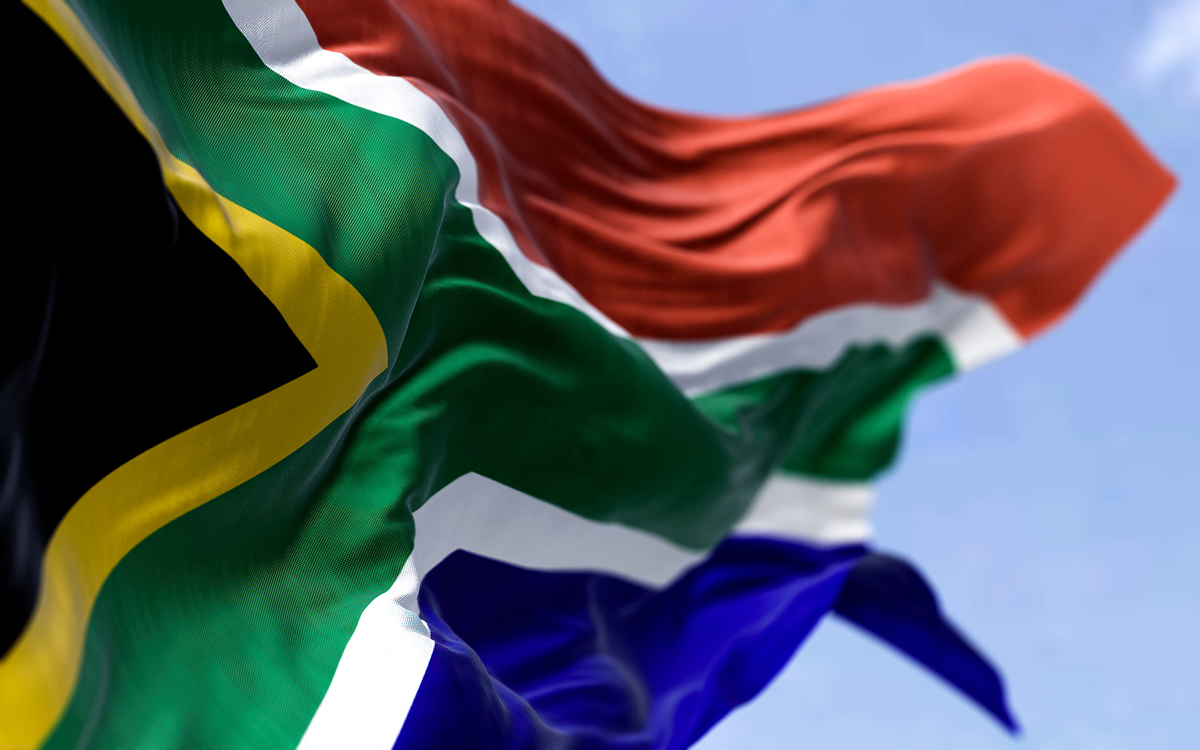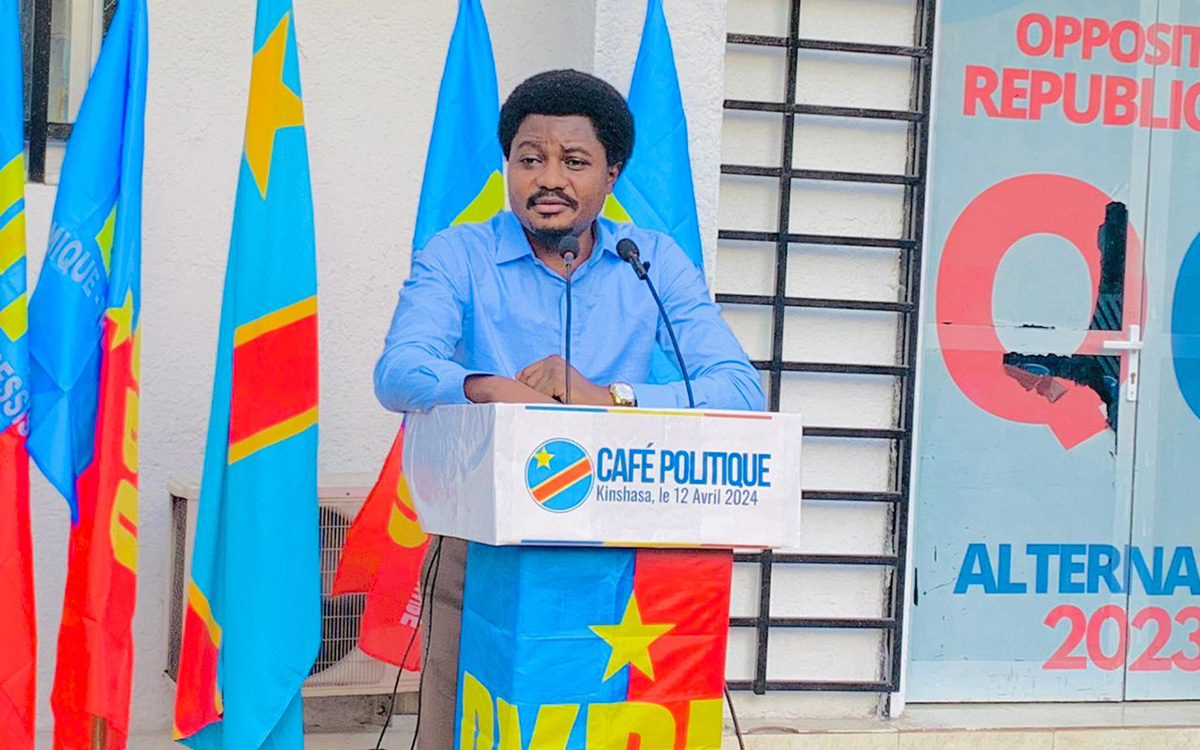Africa
Transgender South Africans urge government to do more to protect them
March 21 was Human Rights Day in the country

South Africa on March 21 marked its Human Rights Day, notably known as Sharpeville Day in Vereeniging to commemorate those who died in 1960 during the Apartheid regime as they fought for democracy.
Although South Africa is one of the most progressive countries in the world when it comes to the advancement of LGBTQ and intersex rights, many transgender people feel as though the government has not done enough to protect them.
One of the most pertinent issues about which trans people often complain is the lack of urgency around hormone therapy within the public health care system and the Department of Home Affairs’ lackadaisical approach when it comes to gender identity on their national identification cards.
Zade de Kock is a trans nonbinary person who has lived in South Africa since the beginning of 2019.
“I have learnt to understand that I don’t feel comfortable identifying with the gender that I was assigned at birth,” said de Kock. “This means that the gender marker on my birth certificate does not accurately define who I am. This is unfortunately the only document that inaccurately defines me, things like my bank card, passport, and any official website that may need my ID number immediately label me incorrectly. This causes major gender dysphoria which is detrimental to my mental health and it is something that cis-gender people could never fully grasp.”
“It’s undeniable that South Africa has been quite progressive compared to other countries when it comes to understanding the lives of the LGBTQ community but as our community grows so should the understanding of those around us,” added de Kock. “Transgender and nonbinary people of South Africa need to be understood and respected for the humans we are. We are members of every society and we are contributing to life and bliss just like everyone else. We demand to be seen, thus, we ask that we get recognized on official documentation.”
Iranti, an LGBTQ and intersex rights group, said it is now important to sit down with policy makers to ensure LGBTQ and intersex people are not left behind.
“Whilst we celebrate gains that affirm human rights, such as the National Assembly finally passing the Prevention and Combating of Hate Crimes and Hate Speech Bill, which aims to clamp down on various forms of hate speech in South Africa as well as … the Human Rights Commission’s recent Equality Court victory against racist and homophobic musician Steve Hofmeyr for his hateful, homophobic statements regarding LGBTIQ persons, we cannot ignore the ways in which the state continues to fail the LGBTIQ community,” Iranti Communications and Media Manager Nolwazi Tusini said.
“In South Africa, no express law exists for transgender and nonbinary persons to amend their gender markers on their identification documents, except for Act 49. Act 49 allows transgender persons, who have begun their medical transition, (hormonal or surgically) and intersex persons to change the sex descriptor on their identity documents, to reflect their gender identity. This law has been challenged by trans and intersex movements, who have applied for amendments with the DHA (Department of Home Affairs),” Tusini further noted. “The DHA has since promised that the soon to be published National Identification and Registration Bill of 2022 will finally resolve issues of legal gender recognition by removing gender markers from South African identity numbers. Iranti is looking forward to offering public comment to this bill and hopes that the passing of this bill will not be delayed for four years, as happened with the crucial Hate Crimes Bill.”
Tusini also complained about the manner in which intersex babies and children still undergo surgeries to make their sex characteristics fit the male or female binary.
“IGM (Intersex Genital Mutilation) still takes place in several hospitals in South Africa, under other names like corrective surgery, causing severe mental and physical pain and suffering as there is no current law that makes IGM unlawful in South Africa,” Tusini noted. “We need legal protection for intersex people, and we are requesting a sit-down discussion between ourselves and policy makers to put an end to this practice. There is no health risk to being intersex. Children should be allowed to decide for themselves what should happen to their bodies.”
“We reiterate our call for President Cyril Ramaphosa to explicitly commit dedicated State officials and State resources to ensure an end to discrimination and violence against LGBTQI people, as envisaged by our constitution,” Tusini added. “This is crucial in order to promote respect for basic human rights for all and restore and uphold human dignity in line with the Bill of Rights, as promised by the presidency in a recent press release.”
Daniel Itai is the Washington Blade’s Africa Correspondent.
Africa
Ugandan activists appeal ruling that upheld Anti-Homosexuality Act
Country’s Constitutional Court refused to ‘nullify’ law

Twenty-two LGBTQ activists in Uganda have appealed this month’s ruling that upheld the country’s Anti-Homosexuality Act.
The Constitutional Court on April 3 refused to “nullify the Anti-Homosexuality Act in its totality.”
President Yoweri Museveni last May signed the law, which contains a death penalty provision for “aggravated homosexuality.”
The U.S. subsequently imposed visa restrictions on Ugandan officials and removed the country from a program that allows sub-Saharan African countries to trade duty-free with the U.S. The World Bank Group also announced the suspension of new loans to Uganda.
Media reports indicate Sexual Minorities Uganda Executive Director Frank Mugisha and Jacqueline Kasha Nabagesara are among the activists who filed the appeal.
Africa
Congolese lawmaker introduces anti-homosexuality bill
Constant Mutamba’s measure seen as distraction from country’s problems

A member of the Democratic Republic of Congo’s National Assembly who is a leader of the country’s opposition party has introduced a bill that would criminalize LGBTQ people.
Part of the bill that Constant Mutamba, leader of the Dynamic Progressive Revolutionary Opposition platform, has put forth states anyone who “commits a homosexual act (including acts and gestures) will be liable to a 5- or 10-year prison sentence.”
The country in recent years has seen government leaders and civic society target the community with anti-LGBTQ sentiments.
The Superior Council for Audiovisual and Communication, Media Regulatory Authority last June cautioned the media against showing LGBTQ-specific conversations. Several activists have criticized Mutamba’s bill, saying it seeks to move attention away from governance, service delivery and other pertinent issues in the country.
Sirius Tekasala, a human rights activist, said a person’s sexual orientation does not impact issues of governance.
“The proposed bill does not go in the direction of improving the socio-economic life of the Congolese people,” said Tekasala. “It’s not homosexuals who prevent you from doing your job well or from breathing. This is a violation of human rights.”
Mbuela Mbadu Dieudonné, a social analyst and trade unionist, said the bill is just a way of deviating people from the pertinent issues.
“He should suggest how to get the Congolese people out of this precariousness of life which is growing on a daily basis,” said Dieudonné. “When we don’t know the real problems of the Congolese people, he sets himself up as the great director of scenes to distract the Congolese people.”
Many Congolese, however, seem to support the bill and have applauded Mutamba for drafting it.
This is not the first time that such kind of a bill has been drafted.
An anti-homosexuality bill introduced in 2010 would have sentenced people who engage in consensual same-sex sexual relations to between three and five years in prison. The measure, however, did not become law.
Mutamba’s bill, however, may pass with Uganda’s Anti-Homosexuality Act in effect. The country’s Constitutional Court earlier this month upheld it. Burundi, Tanzania and other neighboring countries are also considering similar measures.
Many Congolese people view LGBTQ rights as a Western phenomenon that disregards their religious and cultural beliefs. LGBTQ Congolese are among those who have fled the country and sought refuge in the Kakuma refugee camp in Kenya and other places.
Consensual same-sex sexual relations are not criminalized in the Democratic Republic of Congo, but Congolese law does not recognize same-sex marriages.
Africa
Prominent transgender woman in Nigeria arrested, charged with defacing currency
Authorities say Idris Okuneye, known as Bobrisky, flaunted money

Nigeria’s Economic and Financial Crimes Commission’s decision to arrest a well-known transgender woman over the practice of flaunting money has sparked questions among several human rights activists.
Idris Okuneye, who is known as Bobrisky, was first arrested last Wednesday.
Justice Abimbola Awogboro of the Lagos Federal High Court on April 5 charged her with four counts of mutilating N490,000 (roughly $375.)
The EFCC alleges Bobrinsky between last July and August flaunted N50,000 (roughly $36) during a social event and N400,000 ($306) at another gathering last month. Bobrinsky has been charged with violating section 21(1) of the Central Bank Act of 2007.
“The Lagos Zonal EFCC, on Friday, April 5, 2024, secured the conviction of Idris Okuneye, (Bobrisky), before Justice Abimbola Awogboro sitting at the Federal High Court, Ikoyi, Lagos over mutilation of the Naira notes,” reads the EFCC complaint that misgenders Bobrisky. “He was arraigned on Friday on a four-count charge bordering on mutilation of the Naira notes to the tune of N490,000.”
“Justice Awogboro, thereafter, ruled, that upon the admission of guilt by the defendant, and following the evidence tendered, the defendant is declared guilty as charged,” adds the statement.
The EFCC said after listening to both parties, Awogboro delayed his ruling and also ordered that Bobrisky remain in EFCC custody. Activist Felix Abayomi said the EFCC was simply using Bobrisky as a scapegoat due to the fact that she is a vulnerable member of the society.
“Discrimination in the name of implementing a pick and choose law! Why go after someone that is a vulnerable member of our society? Someone that is clearly dealing and coping with stigmatization of her lifestyle choices which is innate. Using her as a scapegoat is uncalled for,” said Abayomi. “How does spraying the Naira that is cultural to us as a people ever even become a financial crime? People who commit economic and financial crimes against us as a people and against our nation state are sitting comfortably in the hollows of our legislative chambers and power.”
Chidi Odinkalu, the former chair of the National Human Rights Commission, said the arrest was not about the mutilation of the Naira notes, but about Bobrisky’s gender identity.
“The EFCC should be ashamed of themselves,” said Odinkalu. “The power of arrest and prosecution is a public trust that should not be weaponized for the persecution of those whom they don’t like. It is either the EFCC is evidently idle or this is a clear abuse of power.”
EFCC spokesperson Dele Oyewale said Odinkalu’s statements were reckless.
“The commission views such commentaries from Odinkalu as unbecoming of a former head of a major government agency,” said Oyewale. “Okuneye was arrested and arraigned by the commission on the basis of clear cases of abuse of the Naira to which he has pleaded guilty.”
“Odinkalu has a right to free speech as a Nigerian, but such a right should be exercised with decorum and responsibility,” added Oyewale. “The commission would not hesitate to take appropriate legal actions against such uncouth commentaries against its lawful mandate by anyone. Odinkalu is warned and advised to ventilate his rascally opinions more responsibly in future situations.”
Bobrisky is one of the few individuals on the African continent who has publicly discussed their gender transition.
Ever since she started to publicly show her transition, several Nigerian political pundits have been calling for her arrest. There are no laws that specifically target trans Nigerians, but the Same-Sex Marriage Act criminalizes same-sex marriages and prohibits the public display of same-sex relationships with up to 14 years in prison.
In states where Sharia law is practiced, those found engaging in same-sex sexual activities can be sentenced to death by stoning. Even those who identify as trans can receive 50 lashes or more.
Update: Awogboro on Friday sentenced Bobrisky to six months in prison without the option of paying a fine. Reports indicate authorities will send her to a men’s prison.
-

 Africa4 days ago
Africa4 days agoCongolese lawmaker introduces anti-homosexuality bill
-

 District of Columbia19 hours ago
District of Columbia19 hours agoReenactment of first gay rights picket at White House draws interest of tourists
-

 World4 days ago
World4 days agoOut in the World: LGBTQ news from Europe and Asia
-

 Arizona23 hours ago
Arizona23 hours agoAriz. governor vetoes anti-transgender, Ten Commandments bill












